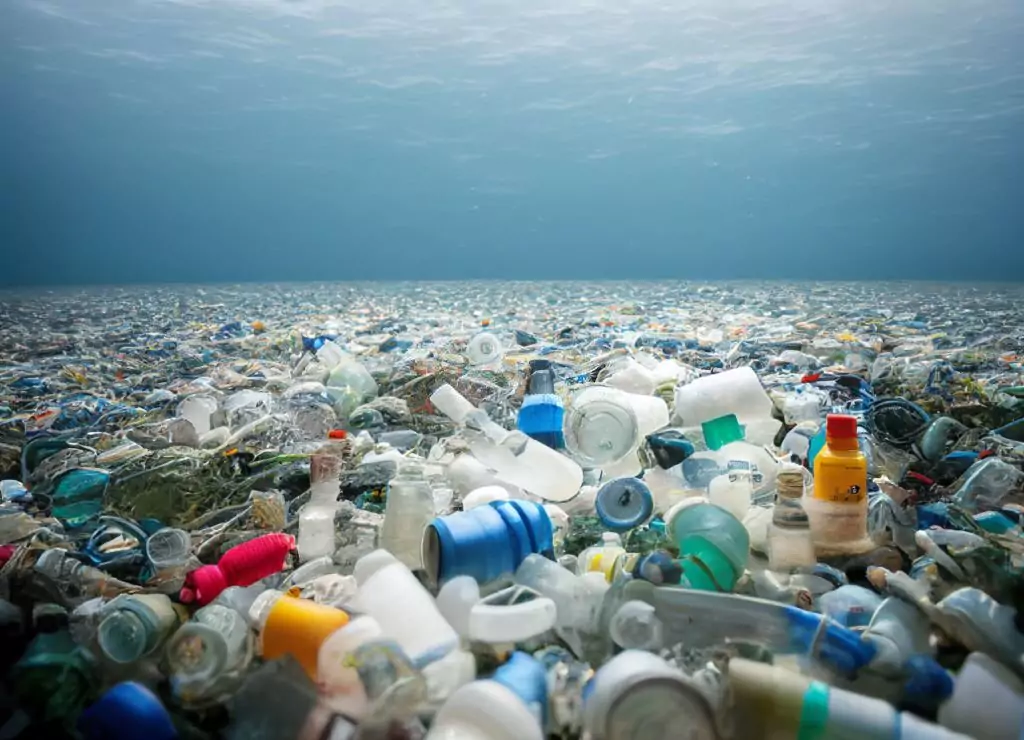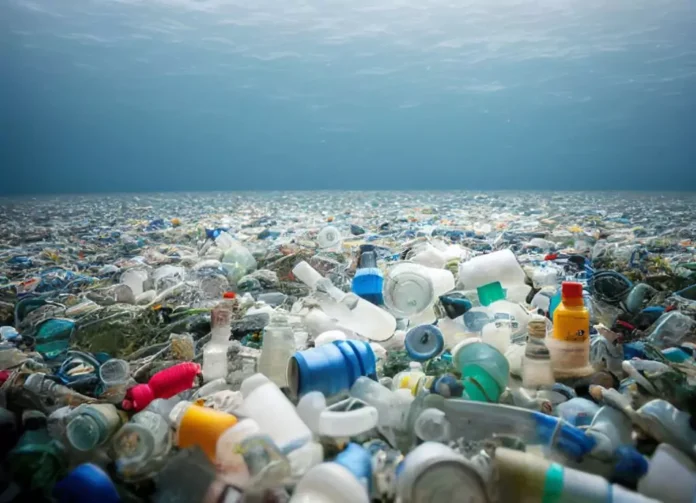Introduction: The Dangers of Plastic Pollution
Plastic pollution is a growing environmental problem that poses a threat to both the environment and human health. Plastic is a synthetic material that is made from petroleum and other chemicals, and it is used in a wide range of products, from packaging to electronics. However, plastic does not biodegrade, meaning that it can persist in the environment for hundreds of years. As a result, plastic pollution has become a major issue, with plastic waste accumulating in landfills, oceans, and other natural environments.

The impact of plastic pollution on the environment is significant. Plastic waste can harm wildlife and ecosystems, pollute waterways and oceans, and contribute to climate change. Additionally, plastic pollution poses a risk to human health, as plastic chemicals can leach into food and water sources and cause a range of health problems.
The Chemical Composition of Plastics and their Health Impacts
Plastics are made from a variety of chemicals, including polyethylene, polypropylene, polystyrene, and PVC. These chemicals can have negative health impacts when they are released into the environment or come into contact with humans.
One of the main concerns with plastic chemicals is their potential to disrupt the endocrine system. Endocrine disruptors are chemicals that interfere with the body’s hormonal system, which can lead to reproductive problems, developmental issues, and other health problems. Some plastic chemicals have been shown to act as endocrine disruptors, including bisphenol A (BPA) and phthalates.
In addition to endocrine disruption, exposure to plastic chemicals has been linked to other health problems, including cancer and neurological disorders. For example, some studies have suggested that exposure to BPA may increase the risk of breast cancer and prostate cancer.
The Widespread Use of Plastics and their Environmental Consequences
Plastic is used in a wide range of products due to its durability and versatility. From packaging materials to electronics, plastic is ubiquitous in modern society. However, this widespread use has significant environmental consequences.
One major issue with plastic production is its contribution to greenhouse gas emissions. The production of plastics requires large amounts of fossil fuels, which release carbon dioxide into the atmosphere when burned. Additionally, plastic waste that ends up in landfills can release methane gas as it decomposes.
Another major environmental consequence of plastic use is ocean pollution. Plastic waste that ends up in oceans can harm marine life through entanglement or ingestion. Additionally, plastics can break down into smaller pieces called microplastics, which can be ingested by marine organisms and enter the food chain.
The Effects of Plastic Pollution on Wildlife and Ecosystems
Plastic pollution has significant impacts on wildlife and ecosystems. Marine animals are particularly vulnerable to plastic pollution due to their proximity to ocean environments where plastic waste accumulates.
Entanglement in plastic waste can cause injury or death for marine animals such as sea turtles or seals. Additionally, ingestion of plastics can cause blockages in digestive systems or lead to malnutrition for animals that mistake plastics for food.
The Great Pacific Garbage Patch is one example of the impact of plastic pollution on marine ecosystems. This area in the Pacific Ocean contains high concentrations of plastic waste that has accumulated due to ocean currents.
The Human Health Risks of Plastic Exposure
Humans are exposed to plastic chemicals through a variety of sources, including food packaging and water bottles. This exposure can have negative health impacts.
One concern with plastic exposure is the potential for chemical leaching into food or water sources. This can occur when plastics are heated or come into contact with acidic substances such as citrus fruits or vinegar.
Additionally, microplastics have been found in drinking water sources around the world. While the health impacts of microplastic exposure are not yet fully understood, there is growing concern about their potential impact on human health.
The Link Between Plastic Pollution and Cancer
There is evidence to suggest that exposure to plastic chemicals may increase the risk of cancer. One way that plastics may contribute to cancer risk is through endocrine disruption.
Endocrine disruptors such as BPA have been linked to an increased risk of breast cancer and prostate cancer. Additionally, some studies have suggested that exposure to phthalates may increase the risk of liver cancer.
Another way that plastics may contribute to cancer risk is through DNA damage. Some studies have suggested that exposure to certain types of plastics may cause DNA damage that could lead to cancer.
The Impact of Microplastics on Human Health
Microplastics are small pieces of plastic that measure less than 5 millimeters in length. These particles are found throughout the environment and can enter the human body through ingestion or inhalation.
There is growing concern about the potential impact of microplastics on human health. While research on this topic is still limited, some studies have suggested that microplastics may cause inflammation or damage to organs such as the liver or kidneys.
Additionally, there is concern about the potential for microplastics to act as carriers for other harmful substances such as bacteria or toxins.
The Need for Action: Reducing Plastic Use and Pollution
To address the issue of plastic pollution, individuals and governments must take action to reduce plastic use and pollution.
One way individuals can reduce their use of plastics is by choosing reusable alternatives such as cloth bags or metal water bottles instead of single-use plastics like grocery bags or disposable water bottles.
Governments can also take action by implementing policies such as bans on single-use plastics or regulations on plastic production and disposal.
However, systemic change will be necessary to truly address the issue of plastic pollution. This will require changes in how products are designed and manufactured as well as changes in consumer behavior.
Conclusion: The Urgent Need for Change in Our Relationship with Plastics
Plastic pollution poses a significant threat to both the environment and human health. While there is still much we do not know about the impact of plastics on human health, there is growing evidence that exposure to plastic chemicals may contribute to a range of health problems including cancer and reproductive issues.
To address this issue, individuals and governments must take action to reduce plastic use and pollution. This will require systemic change as well as changes in individual behavior.
Ultimately, reducing our reliance on plastics will be necessary if we hope to protect both our environment and our health from the negative impacts of plastic pollution.


